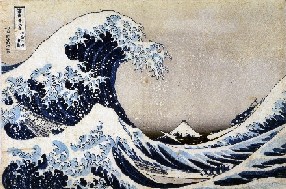The Ambassador's Opening Speech at the
Japan-EU Symposium on Africa's Development
******************************************************************************************************************************************
Opening Speech by
H.E. Ambassador Takekazu KAWAMURA
At the Japan-EU International Symposium on Africa ’s DevelopmentCharlemagne Building, Brussels
3 March 2008
Ladies and Gentlemen,
Commissioner Michel, Ambassador Annadif, Ambassador Odano, Excellencies, distinguished participants, ladies and gentlemen, good morning. It is a great honor and pleasure for me to deliver an opening statement for this very opportune symposium. As we all watched her video message, Ms Maathai unfortunately could not be with us today. Acknowledging my appreciation for her message however, I'm sure we all share her views on many aspects, especially the concept of "MOTTAINAI."
Allow me to join Commissioner Michel in reiterating the importance of Africa. Japan believes that there will be no stability and prosperity in the world unless the problems faced by Africa are solved. I would like to briefly address the importance of synergy effects between Japan and the EU on Africa's development and touch upon Japan's philosophy on Africa's development.
Needless to say, Japan and the EU have taken, and will continue to take initiatives in regards to Africa's development. The EU-Africa Summit was held in Lisbon, in December 2007. Japan will host a large scale international conference on Africa's development, TICAD IV, in May, in Yokohama Japan, and the G8 Hokkaido-Toyako Summit in July. Africa's development is one of the significant themes for these important meetings. There are already various levels and types of cooperation frameworks to deal with Africa's challenges, including those established not only by Japan and the EU, but also other donor nations, various international organizations, and numerous NGOs.
As we explore possibilities to make our partnership more effective, we should seize the opportunity to scrutinize our cooperation with Africa. This can be accomplished by bridging the gaps between these cooperation frameworks and relevant stakeholders. In this context, this symposium is focusing on important topics such as climate change and peace consolidation, which should be dealt with at TICAD IV and the G8 Hokkaido-Toyako Summit. It is therefore expected to spark further discussion on how to realize efficiency in the international cooperation on Africa's development and how to best contribute to international efforts to achieve the MDGs in Africa.
Japan and the EU, which account for about 40% of the world's GDP, and share many fundamental values such as freedom, democracy, the rule of law and human rights, will surely see many positive effects of their cooperation. I would like to add that Japan and the EU's leaders also agreed at the summit held in June 2007 in Berlin that we should work more closely on African development issues.
What is Japan's philosophy on development? We have an idea about what development assistance should be. It is true that Japan does not have historically deep relations with Africa compared with the EU. However, Japan initiated the TICAD Conference as early as 1993, some 15 years ago, when there existed so called "aid fatigue" among some donors. We found an optimism and vibrancy in Africa which perhaps foretold of its strong market performance in recent years.
This year in May, Japan is going to host its fourth TICAD conference. I do not intend to address details about the TICAD process because Ambassador Odano who is in charge of TICAD IV in the Japanese Foreign Ministry, will make a keynote speech on it later in the first session. I will just mention the track record of TICAD on "ownership" and "partnership."
Indeed, donor countries are not able to write even a single chapter of the ongoing tale of African development and nation building. It is developing countries who will take responsibility for their own nation building, assuming "ownership." And donors like Japan and the EU should build strong partnerships with those who assume this ownership. TICAD has continuously championed these two ideals, "ownership" and "partnership".
There is the belief that development assistance must not be charity. Each person in Africa needs to take to heart the idea that investing his or her efforts will lead to greater prosperity. Without this belief in the power of sweat and effort to transform one's own future, long-term development will not begin, and as a result people will not be able to be extricated from poverty.
Asia's experience could be adapted for Africa In fact, placing importance on self-help so that people can stand on their own is a way of thinking that the Japanese people have valued for many years and Japan has put this thinking into practice in Asia. Economic and technical cooperation as well as investment from Japan have been extended on that notion enabling Asia to take off. There are now Asian countries which, having previously been on the receiving end of aid, have emerged as important donor countries contributing as partners in African development. Japan has always been convinced that what was achievable in Asia must be achievable in Africa as well. And, it is entirely achievable.
Ladies and Gentlemen, I believe today's symposium could contribute to strengthening the discussions on Africa's development involving not only African partner countries, but also donor countries, various international organizations and civil society, all aiming "Towards a Vibrant Africa: A Continent of Hope and Opportunity" which is the theme of TICAD IV. With these goals in mind, the co-organizers, the Japanese Government and the European Commission, together with the European Policy Centre and the Japanese-Germany Center Berlin, expect that the distinguished participants will make great use of this opportunity to have fruitful and intellectual discussions. At this final point, I stress again that there will be no stability and prosperity in the world unless the problems faced by Africa are solved.
Thank you for your attention.
back to top
